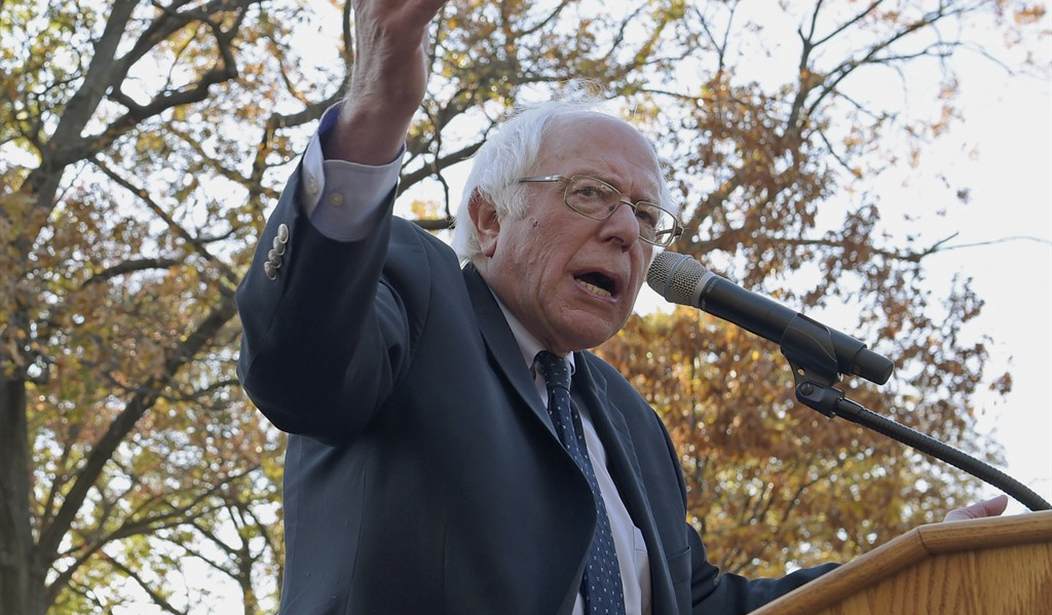Friends, countrymen, non-billionaires, lend me your ears; I come not to praise Bernie Sanders, but not exactly to bury him, either. Last night, the man who lost to Hillary Clinton in the 2016 Democratic primary offered this class-warfare musing on the consumption needs of the very wealthy:
How many yachts do billionaires need? How many cars do they need? Give us a break. You can't have it all.
— Bernie Sanders (@BernieSanders) April 21, 2017
Needless to say, the irony erupting from this tweet could power twenty Priuses for at least 200 miles. Sanders, rather oddly for a class-warrior socialist (or not, actually), owns three houses at the current time, a fact that came up often in the replies to this tweet. Sanders bought the third house — for $575,000 — last August, not long after losing the nomination, and the house came with 500 feet of beach on Lake Champlain. After getting a deluge of criticism for the luxury, the Sanders’ explained that they had sold a family house in Maine to buy the Lake Champlain vacation house, which means they had three houses before that, too.
So how many houses do the wealthy need, anyway? They can only live in one at a time, right? You can’t have it all.
Actually, no one should begrudge Bernie his three houses and options for summer living, which would be easier if Bernie wasn’t selling grudges as part of his professional life. It’s his money; he should be able to use it for his consumption based on his desires. If Bernie desires to collect houses, or cars, or yachts, that’s his choice. It’s just too bad that Bernie doesn’t apply that same principle to everyone else.
It’s easy to point out hypocrisy, though; it’s tougher to deal with reality. Bernie’s complaint isn’t really the consumption, which he uses to build cheap resentment against billionaires, but the manner in which we allow concentration of wealth to occur. Billionaires get made mostly by acquisitions and consolidations these days, not through direct enterprise. Cyberbillionaires like Facebook’s Mark Zuckerberg are the exception, not the rule.
Consolidation does not just increase economic power, but also political power, and eventually produces rent-seeking behavior and cronyism rather than a more functional, capital-based economy. Smaller players get locked out, and suddenly consumers get faced with nameless, faceless companies where accountability dissipates into “the system” — like at United Airlines:
On a conference call with reporters to discuss its first-quarter financial report, Munoz declared that no one would be fired over the incident, including himself. “It was a system failure across various areas,” Munoz explained. “There was never a consideration for firing an employee.”
It was the system! The “system” – rather than an employee – decided to give a higher priority to United staff rather than paying customers. The “system” didn’t think to offer a higher incentive for volunteers, either. The “system” called the police rather than a United employee, or maybe the “system” made the employee sic airport police on their customer. Munoz’ response seems to suggest that the “system” is so all-powerful that even the CEO bears no responsibility for it.
Unfortunately, “the system” gets a lot of blame in a lot of places, and seems to grow more omnipotent as organizations get larger. When those in responsible positions want to avoid accountability, they blame “the system” rather than the people who misuse and abuse their authority. And don’t think Americans haven’t noticed it.
Of course they have — because the same phenomenon has emerged in American government, along with the same lack of accountability. The big-government approach favored by Sanders and other class warriors like him produces exactly the same result. The people in charge end up with lots of houses, cars, and other luxuries, while the rest of us live by bureaucratic whim.
If Sanders and others like him truly worried about billionaires and consumption, they would also want to return government to its most subsidiary state. But the reverse is also true: Those who want smaller government should also want to return markets to a more subsidiary state as well, and guard against consolidation in both the private and public sectors. Perhaps Sanders isn’t the only one advocating a contradiction — even if he may be the most hypocritical about it.








Join the conversation as a VIP Member